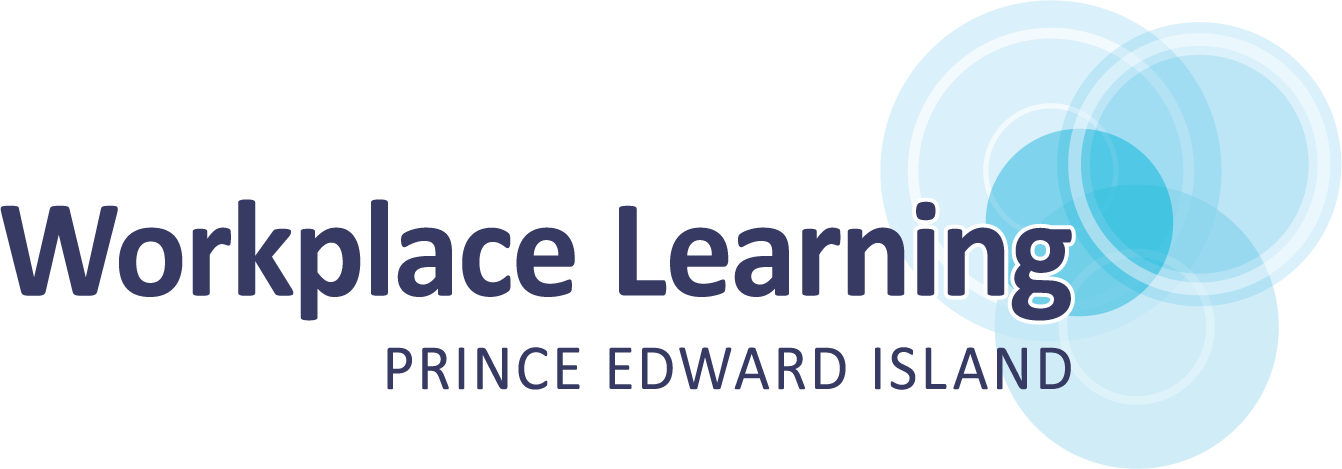ADAPT for Employers


The ADAPT program is currently on hold. Please contact us for more information.
ADAPT is a partnership between Workplace Learning PEI (WLPEI) and the Government of New Brunswick’s Virtual Learning Strategy (VLS) adult-learner support model.
Unlock Their Potential and Enhance Your Workplace
Your employees are your most valuable investment, but a learning disability could be holding them back.
What may appear to be poor understanding, communication, or organization could actually be signs of a Learning Disability (LD) that can be helped with the right support.
The great news? You can help employees reach their full potential by taking advantage of the Accommodating (learning) Disabilities to Accelerate Performance and Thrive (ADAPT) Program.
It’s worth noting that a survey conducted by the Learning Disability Association of Canada found that between 3% and 10% of Canadian adults experience a Learning Disability. That means that up to 9,200 Islanders are experiencing a learning disability, including many capable adults that want to excel in their jobs and need your support.

Free and Comprehensive Support for You and Your Employees
This free program provides easy and discreet access to a suite of virtual services that include:
Screening for LDs
FREE tools to support your employee(s) with LDs in the workplace

What exactly is a learning disability and how does it differ from an intellectual disability?
Learning Disabilities (LDs) are disorders “that affect the way a person’s brain stores, understands, retrieves and/or communicates information.” ¹ Learning disabilities most commonly affect reading abilities.² They can also cause difficulty with oral language (e.g., listening and speaking), written language, and/or mathematics, in addition to organizational and social skills.¹
Importantly, learning disabilities are not related to intelligence and are not the same as intellectual disabilities. In fact, individuals with LDs have average or higher than average IQs.
It’s a Win-Win for Everyone
The ADAPT Program will set your employees up for success at their job AND help you create an inclusive workplace.
The bottom line?
Supporting your employees with LDs will improve your bottom line and help them work around the challenges that have held them back their whole lives.
You’ll also be recognized as an employer that is dedicated to providing a supportive work environment.
It’s truly a win-win for everyone!
Inclusion Makes the Difference
Inclusive workplaces are:³
- twice as likely to meet or exceed financial targets
- three times as likely to be high-performing
- six times more likely to be innovative and agile
- eight times more likely to achieve better business outcomes
What’s Involved?
We’re glad you asked because we designed the ADAPT Program to help you and your employees.
The ADAPT Program offers all of its services virtually for easy and fast access. All you’ll need is a computer and internet connection.
Once you’ve been enrolled, here’s what you can expect:

Step 1 – Chat 1:1
Step 2 – LD Screening
Step 3 – LD Evaluation
Recommendations may include providing more time to complete certain tasks and using tools such as speech-to-text or text-to-speech technology, online and print planners, and more.
If no Learning Disability is diagnosed, your employee will still receive recommendations, and they may be eligible for other programs or supports to address their challenges.
Get Started With the ADAPT Program
Getting started with the ADAPT Program is easy!
Simply call Stephanie at 902-620-3636 or send her an email at smjtorr@gov.pe.ca
Frequently Asked Questions from Employers
Wondering how to determine if your employee(s) may have a learning disability? Still not sure if the ADAPT Program is the right fit for your workplace? Curious about how the program can be delivered virtually?
Read our FAQs for more information about Learning Disabilities and the ADAPT Program.
If you still have questions, feel free to contact our team. We are happy to answer your questions and walk you through how the program works!

How do I know if my employee has an undiagnosed learning disability?
Diagnosing a Learning Disability requires specialized assessment, but there are several signs you can watch for that may indicate the presence of a LD. These include:
- Does the employee confuse similar letters or numbers, reverse them, or confuse their order?
- Does the employee have difficulty reading the newspaper, following small print, and/or following columns?
- Does the person have difficulty completing job applications correctly?
- Does the person have difficulty writing ideas on paper?
- Does the person have persistent problems with sentence structure, writing mechanics, and organizing written work?
- Does the person have trouble dialing phone numbers or reading addresses?
- Does the person reverse or omit letters, words, or phrases when writing?
- Does the person often misread or miscopy?
- Does the person spell the same word differently in one document?
- Is the person able to explain things orally, but not in writing?
- Does the person have poor time management, or are they disorganized?
- Is the person slow to complete tasks?
- Is the person hesitant to try new things (training, taking on new tasks, etc.)?
- Does the person put in a great deal of effort without results to show for it?
- Does the person have a short attention span, hyperactivity or restlessness?
- Does the person have trouble following either written or verbal directions?
Will a LD diagnosis really help my employee perform better at work?
For many individuals, a LD diagnosis provides a sense of relief, as they begin to understand why they’ve struggled to excel in the past. With this clarity and support for their LDs, many discover a renewed sense of purpose and drive. Coupled with tools and adaptations to support their LDs, many individuals go on to excel at work.
What will this program cost me or my employee?
What is Duty to Accommodate?
(Duty to Accommodate | Prince Edward Island Human Rights Commission (peihumanrights.ca))
What is VLS?
The VLS model utilizes the Government of New Brunswick’s proprietary tools for screening for learning disabilities (called the Learning Disability Online Risk Indicator [LDORI]) and their assessment for foundational skills gaps (called the Essential Skills for Success Assessment [ESSA]) to identify client needs and provides individualized supports based on those needs.
Building on WLPEI’s extensive employer experience and network, ADAPT is piloting VLS’s new service of applying the VLS support model, and their tools, to the workplace environment in order to secure necessary workplace accommodations for workers whose learning disabilities affect their workplace functioning.
How do I talk to my employee about getting a LD assessment in a respectful and supportive way?
If you are interested in supporting your employees, please contact the ADAPT team first. Our caring experts will be happy to walk you through the process and set you up for a successful conversation with your employee(s).
How much time will it take to get my employee screened and diagnosed for LDs through the ADAPT Program?
The great news is that going through the ADAPT Program expedites the whole process. Our LD diagnostic assessments are generally completed within 6 weeks of the assessment referral. Because our services are offered virtually and we have a dedicated psychologist for the program, you will not be placed on a waiting list for months on end.
How much time will my employee be away from work?
What are some important facts about Learning Disabilities that everyone should know?
- According to Statistics Canada, more than half a million adults in this country live with a learning disability, making it more challenging for them to learn in universities and colleges, and on the job.⁴
- According to Statistics Canada, learning disabilities increased considerably between 2001 and 2006 among Canadians aged 15 and over by almost 40 per cent to 631,000 people, making it one of the fastest-growing types of disabilities in Canada that isn’t related to aging.⁵
- Learning Disabilities (LDs) are specific neurological disorders that affect the brain’s ability to store, process, retrieve or communicate information. They are invisible and lifelong.
- LDs can be compensated for through alternate ways of learning, accommodations and modifications.
- LDs can occur with other disorders (AD/HD, etc) and may run in families.
- LDs are NOT the same as intellectual disability, autism, deafness, blindness, behavioral disorders or laziness.
- LDs are NOT the result of economic disadvantage, environmental factors or cultural differences.⁶
¹ Learning Disabilities Association of Canada (LDAC), (2021). A Working Description of Learning Disabilities. Retrieved from https://www.ldac-acta.ca/a-working-description-of-learning-disabilities/
² Pullen, P. C., Lane, H. B., Ashworth, K. E., & Lovelace, S. P. (2011). Learning Disabilities. In Kauffman, J. M. & Hallahan, D. P. (Eds.), Handbook of Special Education (pp. 187—197). Routledge.
³ Juliette Bourke and Bernadette Dillon, “The Diversity & Inclusion Revolution,” Deloitte Review, Issue 22, January 2018.
⁴ http://www.statcan.ca/english/freepub/89-628-XIE/89-628-XIE2007003.htm
⁵ http://www.statcan.ca/english/freepub/89-628-XIE/89-628-XIE2007003.htm
PALS 2006 – Facts on Learning Limitations – Extracted may 6, 2022
⁶ http://www.LDAC-acta.ca/what you should know about Lds/ extracted May 6, 2022


Get Started With the ADAPT Program
Getting started with the ADAPT Program is easy!
Simply call Stephanie at 902-620-3636 or send her an email at smjtorr@gov.pe.ca
Contact Us
